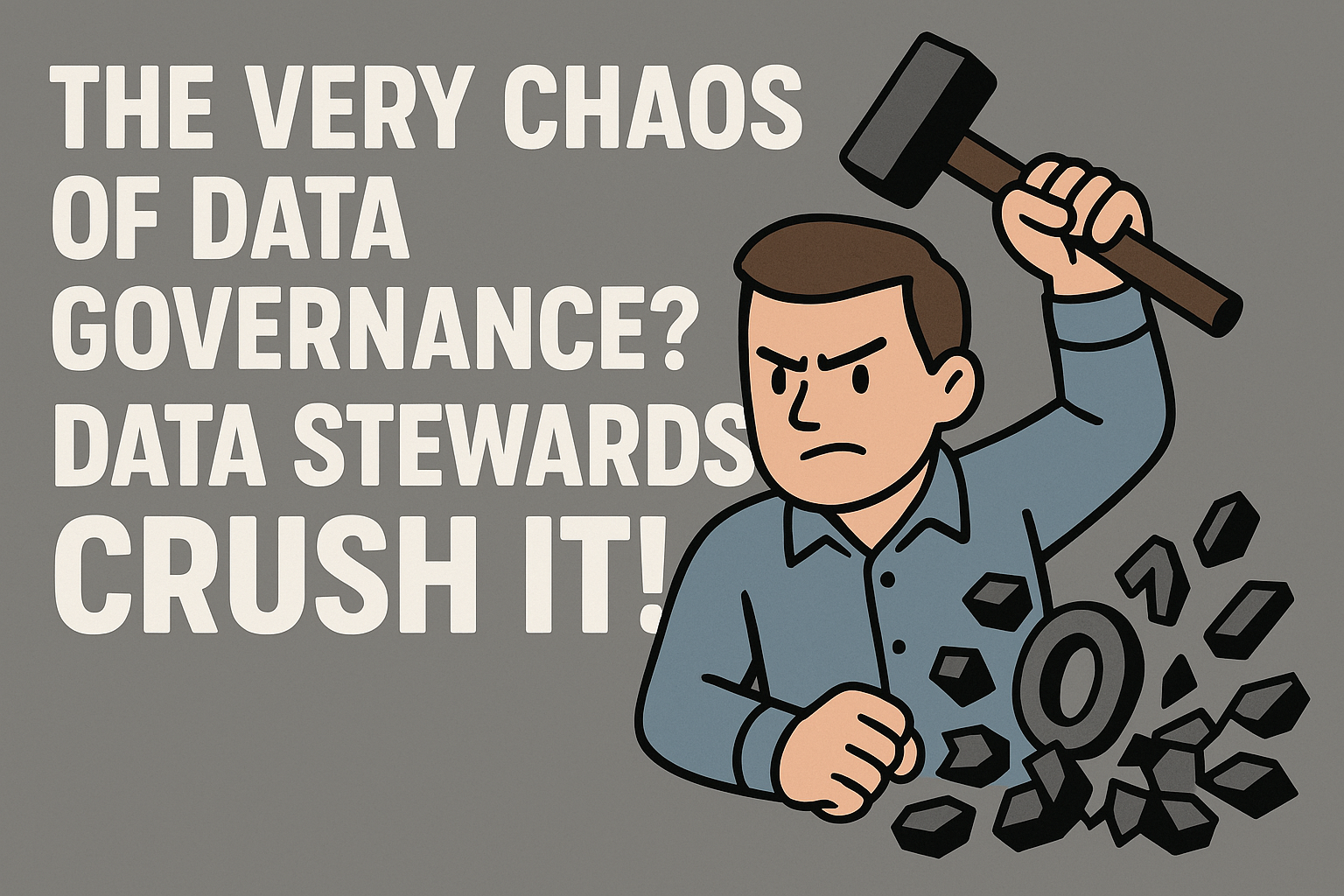Why Is Data Governance So Important Right Now?
Now, let’s tackle a big question: “Why is data governance such a hot topic today?” The answer is pretty exciting.
First, think about how much data exists today. Picture the massive flood of data pouring in from smartphones, IoT devices, and social media. Every single day, billions of data points are created. If left unmanaged, this data quickly becomes a chaotic mess. Even a simple Instagram post carries multiple pieces of data—likes, comments, locations. Now imagine this on a company scale, where customer information, order history, and payment records are piling up at an insane rate.
Let’s say you work at an online store. If the data isn’t properly managed, customers might get completely irrelevant product recommendations, leaving them frustrated: “Why would I want this?” One of my friends runs an e-commerce business, and their inventory system once showed 100 items in stock when in reality, they only had 10. As a result, orders had to be canceled left and right. That’s when they realized, “We need to fix our data governance—NOW.”
Another major reason why data governance is critical is the increasing number of regulations. Laws like the GDPR (General Data Protection Regulation) in Europe and similar privacy laws in other regions are getting stricter by the day. These laws send a clear message: “Mishandle data, and you’re in big trouble.”
If a company experiences a data breach, it’s not just an embarrassment—it can result in staggering fines. For instance, under GDPR rules, businesses can be fined up to 4% of their annual revenue for failing to comply. Just think about that—if you’re running a billion-dollar company, that’s a $40 million penalty.
I know of a company that went through a massive lawsuit after leaking customer data. That was their wake-up call. From that point on, they started taking data governance seriously. Surprisingly, this turned out to be a good business move—customers started trusting them more, leading to even greater success. This proves that data governance doesn’t just prevent disasters—it also creates opportunities.
Data as a Competitive Advantage
Finally, let’s talk about the most important factor—data is now the key to competitive advantage. Businesses that use data effectively can create personalized services, reduce costs, and even predict future trends.
Take Netflix, for example. Their recommendation engine relies entirely on data governance to curate content that perfectly matches your taste. But what if their data was all over the place? Imagine constantly getting random movie recommendations that don’t suit you at all. You’d probably think, “What is this? This isn’t my taste!” and might even stop using the service.
I have a friend working in marketing, and their company optimized its data governance system to enhance personalized advertising. The result? A 20% increase in sales! Meanwhile, a competitor that ignored data governance ended up wasting money on ads that didn’t convert.
That’s the magic of data governance—it doesn’t just keep things organized; it directly impacts business success.
How Data Governance Transformed My Friend’s Business
Let’s take a closer look at the real power of data governance.
My friend, Jake, runs a small online store. At first, his data management was a complete mess. Customer addresses were scribbled into Excel without any consistency, and order records were kept on random pieces of paper. One day, things spiraled out of control—50 orders got mixed up, and frustrated customers started calling, demanding to know “Where’s my package?!” Jake panicked, thinking, “This is going to ruin my business!”
That’s when I suggested, “You need data governance.” His first reaction? “What’s that? Sounds like a hassle!” But with a bit of convincing, he started making small but effective changes—
o “Store customer data properly.”
o “Check order details daily.”
Then, he invested in software to help organize customer information.
Fast forward a few months—his business completely transformed. Order mistakes almost disappeared, and he even started offering personalized product recommendations based on customer preferences. His sales shot up, and one day, over a cup of coffee, he told me, “This is a game-changer!” That’s when it hit me—data governance isn’t just about organization; it’s a formula for business success.

